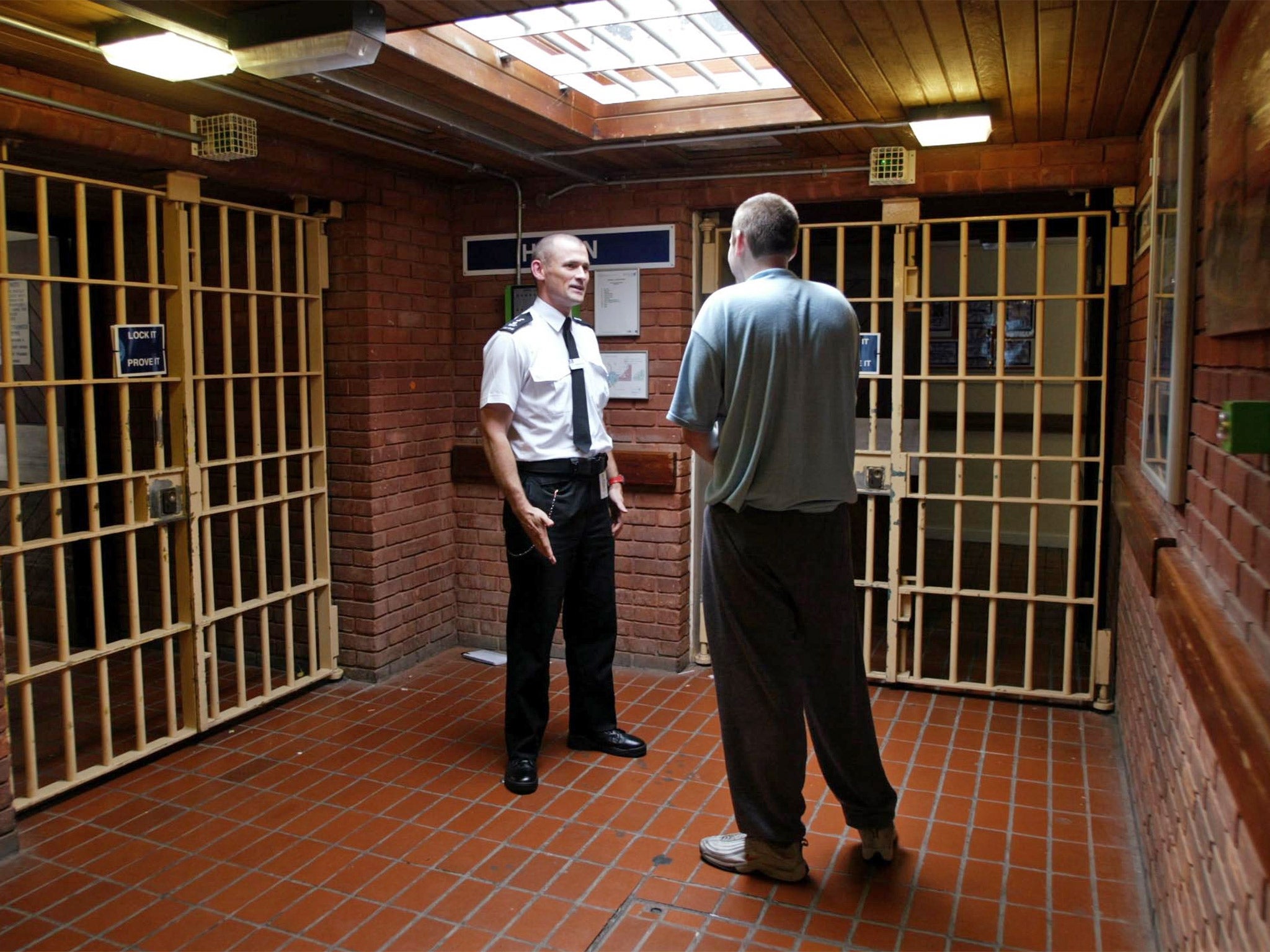Principles in Finance: Is selling crack on the streets ideal training for budding entrepreneurs?
A Dragons' Den-style initiative at Feltham Young Offenders Institute suggests it can be

Any light at the end of the tunnel seems faint in Feltham Young Offenders Institute (YOI). Inspectors say the prison is suffering "unpredictable and reckless" violence. But I don't see violent criminals today, only lost young men trying to find their way.
I've been invited to be a judge at a Dragons' Den event here, organised as part of a business and finance course run by Principles in Finance (PIF). Since I'm active in the local community, I've been asked to share my experience of self-employment with inmates who will soon be joining me in that "sector". And as she leads the panel of four judges through the prison gates – and a few more – to reach the dismal grey chapel, Simone Haynes, PIF's founder, explains: "The event is to encourage the participants to think about self-employment as a real alternative to crime."
One judge used to be an inmate here and now runs a youth project in south London; another is a music manager; and Haynes herself is a former corporate banker who began to volunteer in prisons after her nephew spent some time incarcerated. He reported back to her both the lack of support for rehabilitating offenders, and their tremendous if misdirected resourcefulness, and a thought occurred: "People selling crack just need to be encouraged to use their business initiative to do something legal."
The event is to encourage the participants to think about self-employment as a real alternative to crime
Simone used all her annual leave in 2009 to deliver free financial workshops, and launched PIF officially in 2010. But when 68 per cent of offenders aged under 18 are reconvicted within a year of release, she still has a mountain to climb. As, metaphorically, do her contestants. Each entrant will receive a free copy of Simone's book – a prisoner's guide to entrepreneurship called Money Behind Bars – as well as the promise of mentoring on release and the prospect of a further start-up grant of up to £10,000. But today, they are competing for a single kick-start prize of £500.
While the judges face them on plastic seats, and other inmates fill the pews, the five contestants must stand behind the wooden lectern and pitch into the microphone, with ideas ranging from bespoke gardening to a frozen yoghurt-making firm that would employ ex-offenders.
Eighteen-year-old Ade [some names have been changed] goes further. He wants to start an after-school "safe place" where rootless youngsters can do their homework and engage their creative interests. And he speaks from experience. Rejected by his birth mother and placed in both institutional and foster care, by the age of 11, he was a Brixton gang foot soldier selling crack. At 13, he was storing firearms in his bedroom. Kids in care represent 1 per cent of the general population, but 33 times as many in prison. He tugs on the plastic crucifix around his neck and says: "I want to run this project to prevent other children going through what I've gone through."
Given the right support, the ideas presented at Feltham YOI actually could become a reality. The idea of television's 's Dragons' Den format to help vulnerable people break negative life cycles has certainly caught on. For example, Charity Youth At Risk in Newhaven, Sussex – which uses the model to support local homeless young people – fields 20-year-old Cheryl as a success story. Having applied for £150 to gain a licence to work in the security industry, she has been set a target: raise a proportion herself, and the dragons will fund the remainder: Now she says, "I was told that I would never amount to anything while growing up. Taking part has improved my self-belief."
Meanwhile, Nottinghamshire County Council's community safety team also uses the model. In a previous competition focusing on the social acceptability of alcohol among children, the winning pupil from the Holgate Academy, Hucknall, produced a campaign for messages on drink cartons and mats, as well as chocolate wrappers and a cartoon app. And in March next year, Year 10 pupils across the county will be pitching ideas on how to tackle hate crime to a panel including the local Police Commissioner,
But back at Feltham, today's £500 prize is going to Brian, 19, from Essex – already on his ninth stretch for burglary – to develop an online gaming business. "I've never won anything before," he says. "But I put a lot of effort into developing my proposal, and called family and friends to get them to help me with the research."
A practical exercise in networking, then. A grounding in financial management (his business plan was the most thorough). And above all, an inspiration. As some of the audience stand up to announce loudly that they want to enter next time, Simone grins. "We've delivered training to over 1,000 graduates since we started," she says. "And they're not bad people. They've just made some bad choices."
PIF's next event is at HMP Wormwood Scrubs on 27 October
